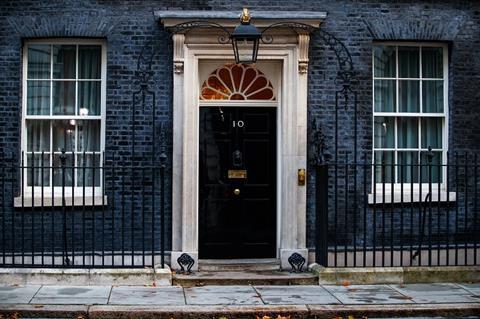Keir StarmerŌĆÖs party has won a large majority as many expected. As we gear up for the first Labour government for 14 years, here is a reminder of what they have pledged for the built environment
Labour has won a historic landslide and now construction professionals will be turning their eyes to the partyŌĆÖs pledges for the built environment.
The party has put planning reforms, housebuilding and infrastructure at the centre of its 142-page manifesto, which it titled ŌĆśChangeŌĆÖ.
Keir StarmerŌĆÖs party, after winning more than 400 seats in yesterdayŌĆÖs election, is expected to move swiftly to implement its key manifesto pledges, particularly on housing.

Labour has pledged to build 1.5 million new homes over the next parliament and will reportedly announce more details of its plan to achieve it this month.
It is expected to announce a new planning framework before the end of the month which would re-instate mandatory housing targets and strengthen presumptions in favour of sustainable development.
The party has pledged to release lower quality green belt land, which is calling ŌĆśgrey beltŌĆÖ and is expected to tell local authorities to identify this land for development in the next few weeks.
It has promised to prioritise social rented housing, reduce Right to Buy discounts and make changes to the Affordable Homes Programme to boost affordable housing.
The party was criticised last month for omitting an affordable housing target from its manifesto. The party had previously said it would target 40% affordable housing on its proposed new towns, but the manifesto did not include this specific target, attracting criticism from thinktank Common Wealth.
>> Also read: Next prime minister should hold COBRA meeting on housing crisis, says British LandŌĆÖs Canada Water chief
>> Will LabourŌĆÖs apprenticeship reforms really solve the skills crisis?
Many construction firms will be looking towards LabourŌĆÖs policy on infrastructure. The party is pledging to develop a 10-year infrastructure strategy, including improving rail connectivity in the north of England.
At-a-glance: the key measures for construction in the Labour manifesto
- build 1.5 million new homes over the next parliament
- re-instate mandatory housing targets, strengthen presumptions in favour of sustainable development and fund additional planning officers, paid for by increasing the rate of the stamp duty surcharge paid by non-UK residents
- prioritise the release of supposedly lower quality ŌĆ£grey beltŌĆØ land
- build a new generation of new towns and to reform compulsory purchase compensation rules relating to hope value
- new planning powers and housing grant funding flexibilities for combined authorities
- make changes to the Affordable Homes Programme ŌĆ£to ensure that it delivers more homes from existing fundingŌĆØ
- establish an Industrial Strategy Council
- a ┬Ż7.3bn National Wealth Fund to be tasked with supporting LabourŌĆÖs growth and clean energy missions
- develop a 10-year infrastructure strategy, to give the private sector ŌĆ£certainty about project pipelineŌĆØ
- improving rail connectivity across the north of England.
- create a new National Infrastructure and Service Transformation Authority, bringing together existing bodies, to set strategic infrastructure priorities and oversee the design, scope, and delivery of projects
- update national planning policy to make it easier to build laboratories, digital infrastructure and gigafactories
- invest an extra ┬Ż6.6bn as part of its Warm Homes Plan to upgrade five million homes
- secure a mutual recognition agreement for professional qualifications to help open up markets for UK service exporters
Labour has said this will be aligned to a new industrial strategy, which will guide investment plans and ŌĆ£give the private sector certainty about the project pipelineŌĆØ.
The government has pledged to merge the National Infrastructure Commission and Infrastructure and Projects Authority to create a new body.
This ŌĆ£National Infrastructure and Service Transformation AuthorityŌĆØ will bring together existing bodies, to set strategic infrastructure priorities and oversee the design, scope, and delivery of projects. Labour said it will update national planning policy to make it easier to build laboratories, digital infrastructure and gigafactories.
The party has pledged to invest an extra ┬Ż6.6bn as part of its Warm Homes Plan to upgrade five million homes.
On skills, the party has promised to secure a mutual recognition agreement for professional qualifications to help open up markets for UK service exporters.


























No comments yet